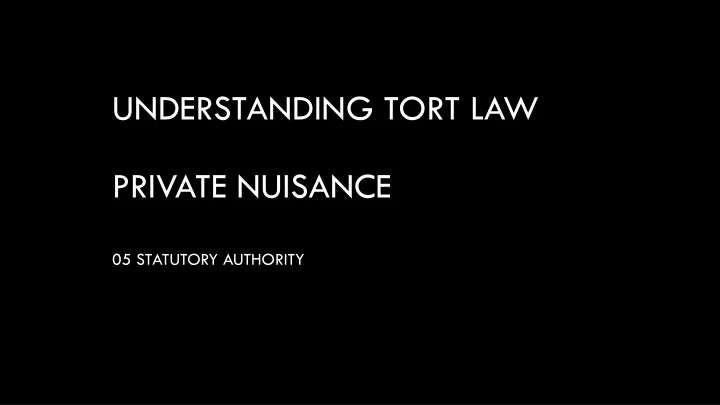

UNDERSTANDING TORT LAW PRIVATE NUISANCE 05 STATUTORY AUTHORITY
Allen v Gulf Oil Refining Ltd [1981] AC 1001 (HL)
STATUTORY AUTHORITY Three possibilities: 1. The legislation imposes a duty on the D that requires the D to commit the purported nuisance There can be no liability unless the D was negligent 2. The legislation gives the D the authority to perform an activity and carrying out that activity requires the D to commit the purported nuisance There can be no liability unless the D was negligent 3. The legislation gives the D the authority to perform an activity but carrying out that activity does not requires the D to commit the purported nuisance The D will be liable unless that possibility is clearly extinguished by legislation
Tock v St John’s Metropolitan Area Board [1989] 2 SCR 1181
To my mind, the flaw in the inevitability test, as traditionally expressed, is that it does not take due account of the fact that “inevitable” damage is often nothing but a hidden cost of running a given system. … The costs of damage that is an inevitable consequence of the provision of services that benefit the public at large should be borne equally by all those who profit from the service.
La Forest J’s argument in Tock 1. The scheme is in the public interest 2. It damages the P 3. The P should not have to pay to further the public interest 4. The loss should be spread to all users of the sewer
Recommend
More recommend